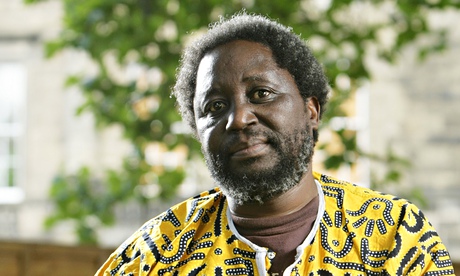
Chenjerai Hove, who has died aged 59 of liver failure, was a leading Zimbabwean novelist and poet, and a beacon of integrity and dissidence. He had lived in exile in the west since 2001, and along with Dambudzo Marechera, Yvonne Vera and Charles Mungoshi, was one of the founding figures of modern Zimbabwean literature – a group of writers whose work dealt with the societies of both pre- and post-independence. Of these, only Mungoshi now survives.
It is a feature of Zimbabwean literature that many of its writers have achieved international acclaim. Indeed, the story of Zimbabwe – a country with a deep history and a legacy of stone cities, of white colonialism followed by white rebellion against the crown, of heroic liberation struggle followed by reconciliation and, lately, by racial division and economic meltdown – has made it an obvious place for literature of an intense order.
Hove, a writer with an impeccable command both of English and Shona, was not simply a nativist. The triumph of his greatest novel, Bones (1988), the tale of Marita, a farm worker in pre-independence Rhodesia whose son has disappeared into the forest to join a band of liberation fighters, is not just its application of Shona folklore and mythology – often in extremely nuanced form – but the way in which its use of English allows the reader to understand the complexities of Shona linguistic expression. It is impossible to read Bones in a condescending manner: it renders Zimbabwean thought as the equal of European thought and, with great subtlety, embarks upon a meditation on land and its meaning.
Hove was far from convinced of Robert Mugabe’s use of the value of land as a reason for seizing white-owned farms. And he was certainly opposed to the accompanying turn to authoritarianism by Mugabe’s government from 2000 onwards. His collection of essays, Palaver Finish (2002), is a sustained indictment of the descent of Zimbabwean political society, its title a call for an end to empty talk. Hove was an early target of the regime and, after death threats and attempts on his life, took himself into exile in 2001, first to France, then to the US, and then Norway, where he was living at the time of his death.
A cosmopolitan person, he adapted well to life outside Zimbabwe and continued to write luminous works. Extremely aware of the uses of language, in an interview in London in 2007 with the academic Ranka Primorac, he said: “For me, even ... financial [and] economic corruption begins with the corruption of language. Look at people talking about ‘American interests’, or Mugabe talking about ‘sovereignty’ and ‘patriotism’. All of a sudden there is a new definition of patriotism. Suddenly, some of us who are critical of the system are no longer patriots or nationalists. Of course, the person who is in political power is in charge of defining who is a patriot, who is a nationalist and what is sovereignty. All of a sudden these words are being given a new meaning. So the corruption of language, for me, psychologically and emotionally, is the beginning of a multiplicity of other corruptions.”
It was as a champion of language as a means of remaining truthful about nationalism, land and values that Hove spent his time in exile, producing a long list of works, including poetry and plays as well as essays and novels. He won many awards and fellowships, and became the inaugural president of the Zimbabwe Writers Union in 1984 as well as a founding board member of the Zimbabwe Human Rights Association in 1990.
Hove was born in Mazvihwa, in rural Rhodesia, the son of a local chief. He was educated at two Catholic boarding schools: Kutama college in the Zvimba area west of Harare (then Salisbury), and Marist Brothers, in Hwange, in the north-west of the country. He later studied at both the University of South Africa, in Pretoria, and what is now the University of Zimbabwe, in Harare. In his early days after university he made his living as a teacher and in the publishing industry.
In exile, Hove longed to return to Zimbabwe, and had hope for the future. “Dictatorships, tyrannies, they are transient: they come and pass,” he said. “I understand that, and I will go through that.” Sadly he failed to get to the end of the Mugabe era, but he will be remembered as someone who wrote beautifully and who did not sell his soul for the squalid rhetoric that dominates Zimbabwe today.
He is survived by his wife, Tekla, and by six children.
• Chenjerai Hove, writer, born 9 February 1956; died 12 July 2015

